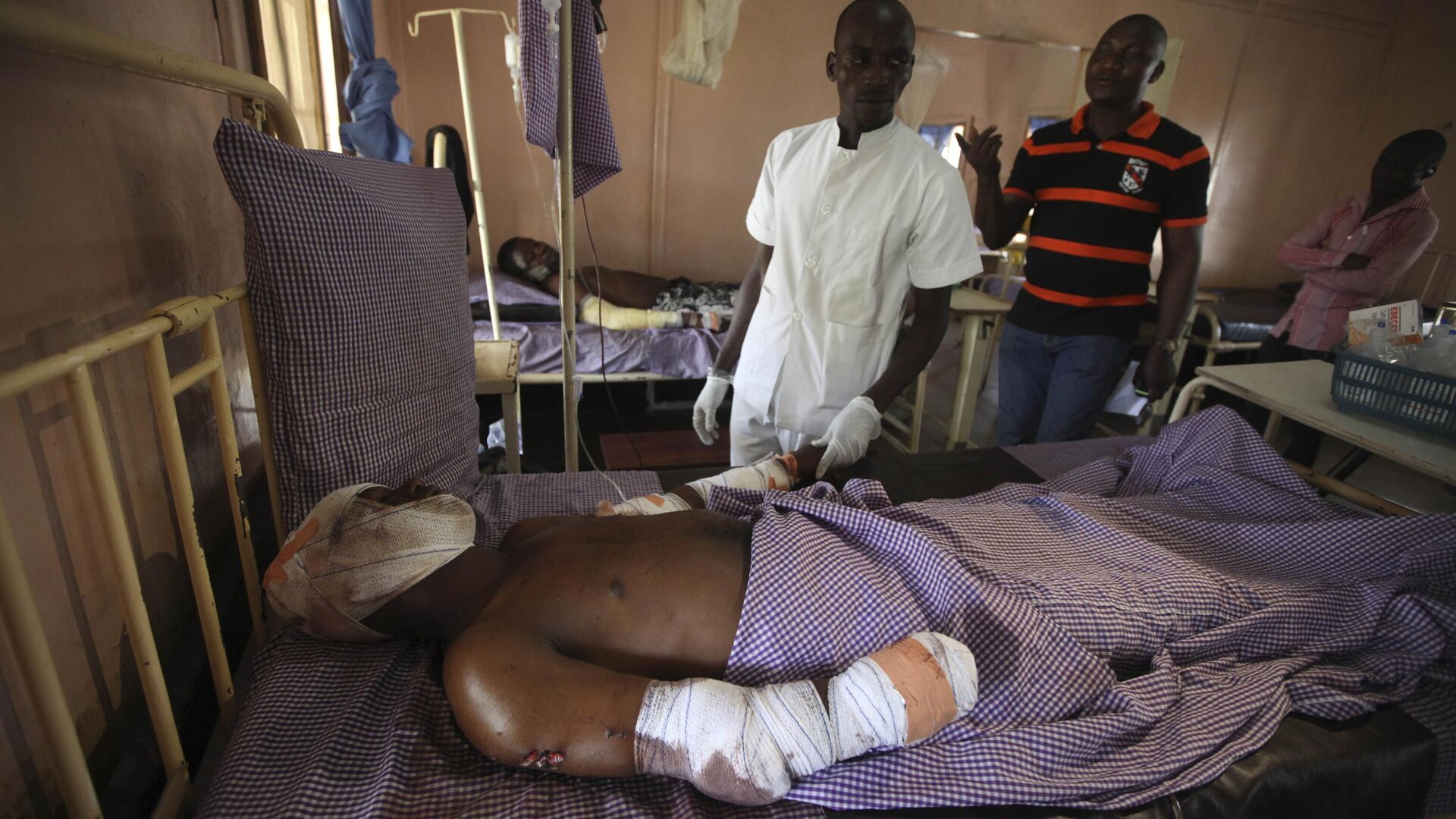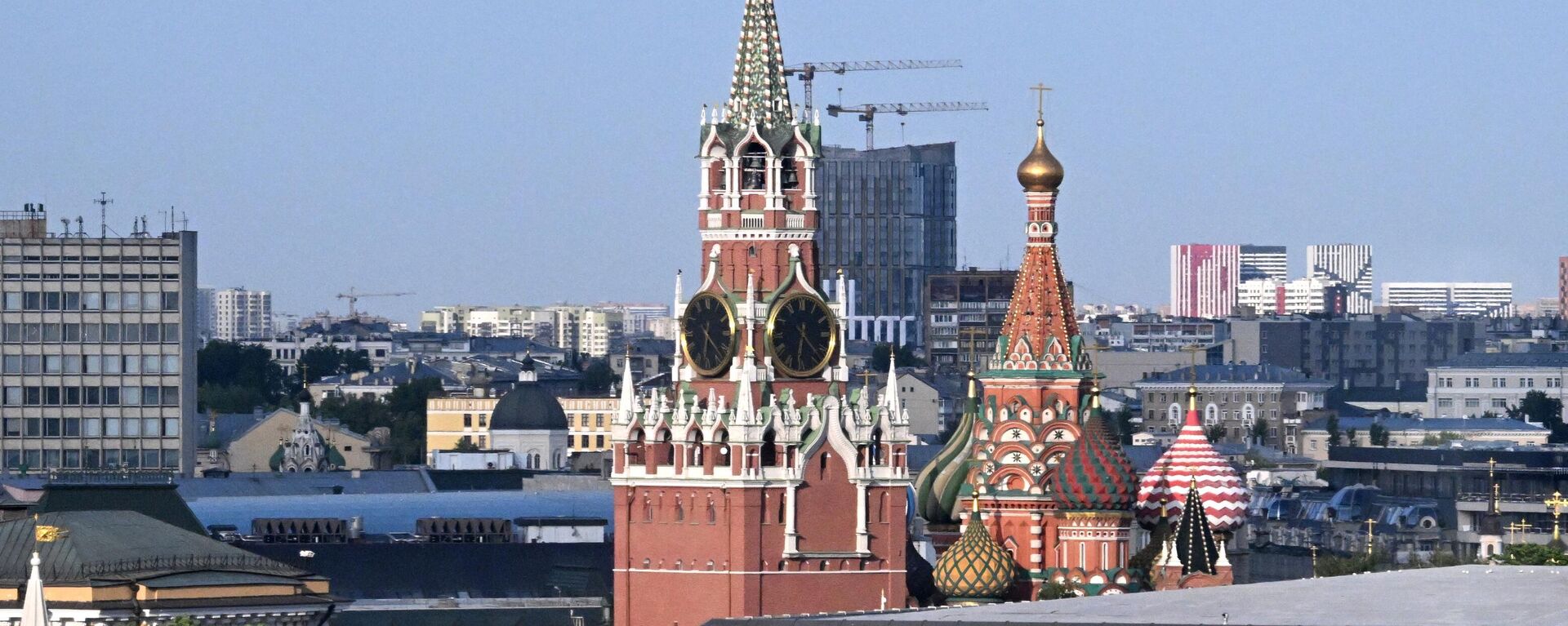https://en.sputniknews.africa/20230621/nigeria-loses-thousands-of-doctors-to-uk-as-country-reaches-alarming-security-situation-1060058608.html
Nigeria Loses Thousands of Doctors to UK As Country Reaches 'Alarming' Security Situation
Nigeria Loses Thousands of Doctors to UK As Country Reaches 'Alarming' Security Situation
Sputnik Africa
According to a number of investigations carried out in the United Kingdom, a great number of African doctors (many of whom have come from Nigeria) are being... 21.06.2023, Sputnik Africa
2023-06-21T11:42+0200
2023-06-21T11:42+0200
2023-06-21T11:42+0200
sub-saharan africa
west africa
united kingdom (uk)
exploitation
nigeria
world health organization (who)
https://cdn1.img.sputniknews.africa/img/07e7/06/15/1060059845_0:160:3072:1888_1920x0_80_0_0_2a6b8ec8d1c9b3c8e50abce9ed4109af.jpg
No fewer than 6,221 doctors have left Nigeria for the United Kingdom over the past six years, according to Akanimo Essiet and Professor Lucky Onotai, respectively president and secretary-general of the Nigerian branch of the International College of Surgeons (ICS). This has left 40 million of Nigeria's approximately 230 million inhabitants with inadequate healthcare, a statement said.Before 2022, Nigeria had a doctor-to-patient ratio of 1:4,000, almost a 10th of the WHO's recommended ratio of 1:600, the meeting highlighted.In Yoruba, one of Nigeria's three main languages, the word to describe somebody leaving his or her native country to work abroad is "japa".The doctors' exodus is occurring as Nigeria is in the midst of an "alarming" security situation which heath officials are urging the government to rectify.Both professors suggested that universal healthcare should be established on federal, state, and municipal levels.According to a number of investigations carried out by various media, Nigerian doctors hired to work in UK hospitals have complained that they are being exploited. Medical professionals worry that they are working too hard and might endanger the health of their patients.One of the investigations showed that a privately run British healthcare organization that specializes in hiring foreign-trained doctors, NES Healthcare, hired Nigerian doctors to serve at private hospitals under circumstances that were not permitted by the UK's National Health Service.One of the doctors interviewed by investigators said he was unaware that a contract with NES made him ineligible under the UK statute protecting employees from excessive working hours and exposed him to a number of wage reductions. He added that his work hours were extremely irregular - he was on call 24 hours a day, seven days a week and had to stay on the hospital's grounds. He said that working there was similar to being in "a prison".In April, London put Nigeria on the red list - countries on it are not supposed to actively recruit medical personnel. Whether the measure is effective has yet to be seen.
https://en.sputniknews.africa/20230531/multipolar-world-should-replace-neocolonial-practices-medvedev-stresses-1059624018.html
west africa
united kingdom (uk)
nigeria
Sputnik Africa
feedback@sputniknews.com
+74956456601
MIA „Rossiya Segodnya“
2023
News
en_EN
Sputnik Africa
feedback@sputniknews.com
+74956456601
MIA „Rossiya Segodnya“
Sputnik Africa
feedback@sputniknews.com
+74956456601
MIA „Rossiya Segodnya“
west africa, united kingdom (uk), exploitation, nigeria, world health organization (who)
west africa, united kingdom (uk), exploitation, nigeria, world health organization (who)
Nigeria Loses Thousands of Doctors to UK As Country Reaches 'Alarming' Security Situation
According to a number of investigations carried out in the United Kingdom, a great number of African doctors (many of whom have come from Nigeria) are being exploited by local medical companies. The victims have said that they work more hours than are permissible by British law, feel depressed and have few rights.
No fewer than 6,221 doctors have left Nigeria for the United Kingdom over the past six years, according to Akanimo Essiet and Professor Lucky Onotai, respectively president and secretary-general of the Nigerian branch of the International College of Surgeons (ICS).
This has left 40 million of Nigeria's approximately 230 million inhabitants with inadequate healthcare, a statement said.
"Evidence shows that the gap widens and the number of registered Nigerian doctors in the UK rose from 4,765 in 2017 to 10,986 in 2023. This meant that 6,221 doctors were lost to the UK in the past six years. This suggests that more than 40 million Nigerians will find it harder to see a doctor," the ICS duo said in a statement that was released after the 56th Annual General Meeting and Scientific Conference of the ICS.
Before 2022,
Nigeria had a doctor-to-patient ratio of 1:4,000, almost a 10th of the WHO's recommended ratio of 1:600, the meeting highlighted.
In Yoruba, one of Nigeria's three main languages, the word to describe somebody leaving his or her native country to work abroad is "japa".
"The 'JAPA' phenomenon has drastically reduced our healthcare workforce," the two professors outlined.
The doctors' exodus is occurring as Nigeria is in the midst of an "alarming" security situation which heath officials are urging the government to rectify.
"The security situation in the country is alarming and negatively affecting the health status of Nigerians," they emphasized. "The Government should act decisively to bring it under control."
Both professors suggested that universal healthcare should be established on federal, state, and municipal levels.
According to a number of investigations carried out by various media, Nigerian doctors hired to work in UK hospitals have complained that they are being exploited. Medical professionals worry that they are working too hard and might endanger the health of their patients.
One of the investigations showed that a privately run British healthcare organization that specializes in hiring foreign-trained doctors, NES Healthcare, hired Nigerian doctors to serve at private hospitals under circumstances that were not permitted by the UK's National Health Service.
One of the doctors interviewed by investigators said he was unaware that a contract with NES made him ineligible under the UK statute protecting employees from excessive working hours and exposed him to a number of wage reductions.
He added that his work hours were extremely irregular - he was on call 24 hours a day, seven days a week and had to stay on the hospital's grounds. He said that working there was similar to being in "a prison".
In April,
London put Nigeria on the red list - countries on it are not supposed to actively recruit medical personnel. Whether the measure is effective has yet to be seen.


